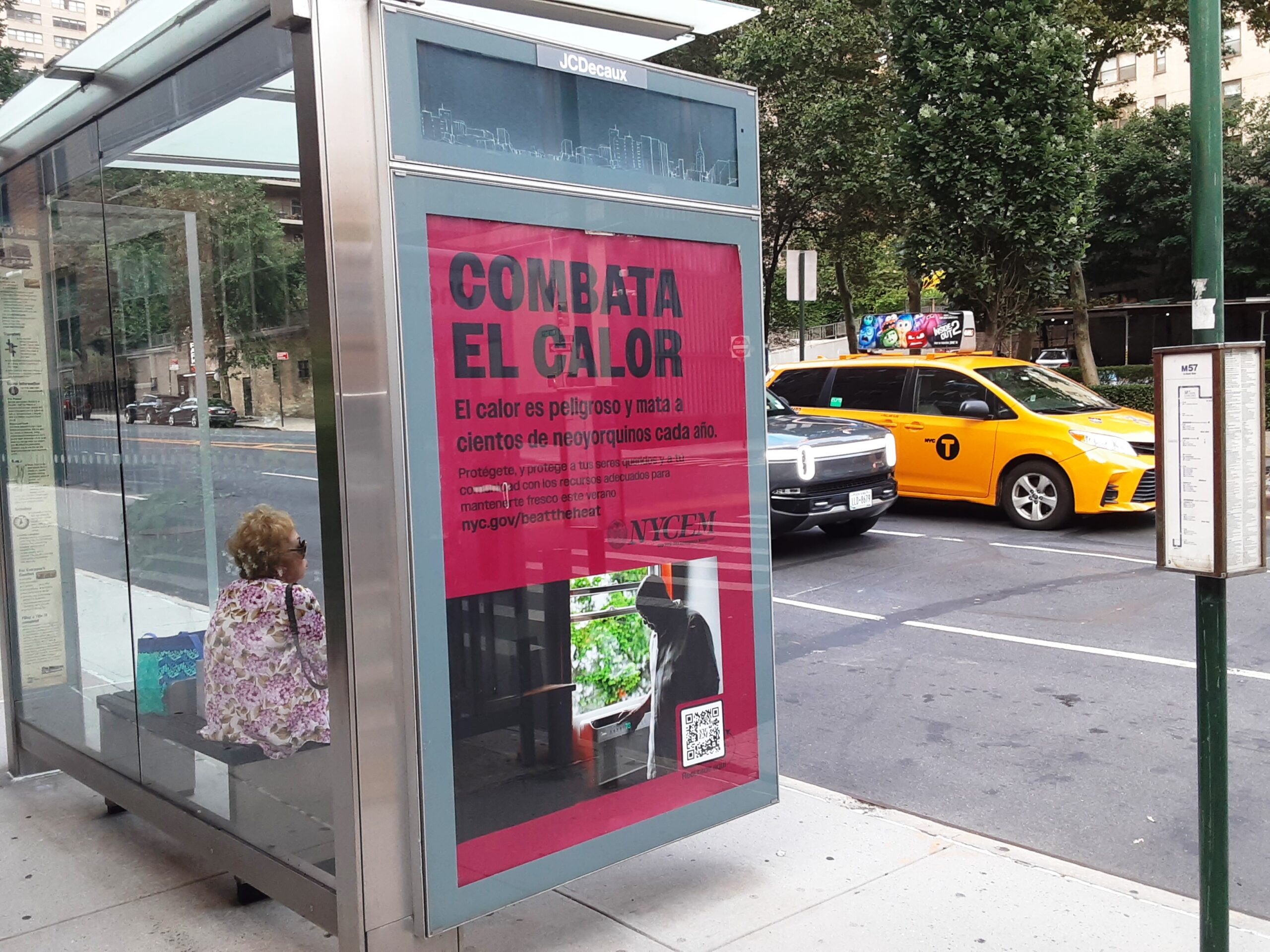
By The newspaper
09 Jul 2024, 15:19 PM EDT
The heat and humidity wave that has been hitting New York and the tri-state area for days will continue at least this Wednesday and Thursday.
The second regional heat wave began on Friday and will last seven days by the time it ends on Thursday. “It’s not just the stifling temperatures in the three states: the humidity is making this increase in temperatures dangerous,” he warned. NBC News. And when the sun goes down, the break is relative. “These warm overnight temperatures work in conjunction with high humidity and light winds to create some stifling summer nights that prevent any significant relief from the heat.”
The current wind chill value in NYC is 93F (34C) for the day, with a 40% chance of precipitation. Although everything in nature is unpredictable, Friday will see a slight drop in temperature with a daytime wind chill of 84F (29C) due to an 80% chance of rain.
- In the face of extreme heat, these are the options NYC offers if you don’t have air conditioning
Weather updates can be found here and on the National Weather Service (NWS-NY) website. More details about the forecast for New York and Jersey counties can be found here and on this page of NBC News Weather.
How to beat the heat in a city as congested as New York?
Under no circumstances should children and pets be left locked in a car, as this can be deadly, even within minutes. The American Academy of Pediatrics warns that the temperature inside a car, regardless of whether the windows are closed or open, can rise as much as 40 degrees F (4.5 C) in an hour, even if the thermometer outside reads about 70 F (21 C). Most of the temperature increase occurs within the first 15-30 minutes, and no amount of shading is enough to protect children from these dangers, the FDNY notes.
Tips to prevent and treat hyperthermia (high body temperature):
- Drink plenty of fluids throughout the day, including water and vegetable and fruit juices. Avoid coffee and alcohol.
- If your home does not have air conditioning or fans, keep curtains and windows closed during the day and open at night.
- Avoid the sun. Prolonged exposure always has negative consequences.
- Try to wear cotton or natural, cool and light fabrics, and avoid synthetic fibers and dark colors.
- Do not exercise outdoors and avoid crowded places during peak heat hours. Around 3:00 pm is considered to be the hottest time of the day.
Additionally, to avoid blackouts and fires, Con Ed recommends:
- Limit the use of large appliances, such as washing machines, dryers, dishwashers and microwaves, between 2 and 10 p.m.
- Use only one large appliance at a time in the home.
- Limit the use of air conditioning whenever possible. If you have several units, turn on only one.
- Use fans to help circulate air. If you open windows or balconies, do not leave children unattended. Check window guards carefully periodically. Screens or covers are not safe substitutes.
- Turn off the air conditioning when you are not at home and use a timer to start cooling half an hour before you arrive. Set the temperature that is comfortable for you.
